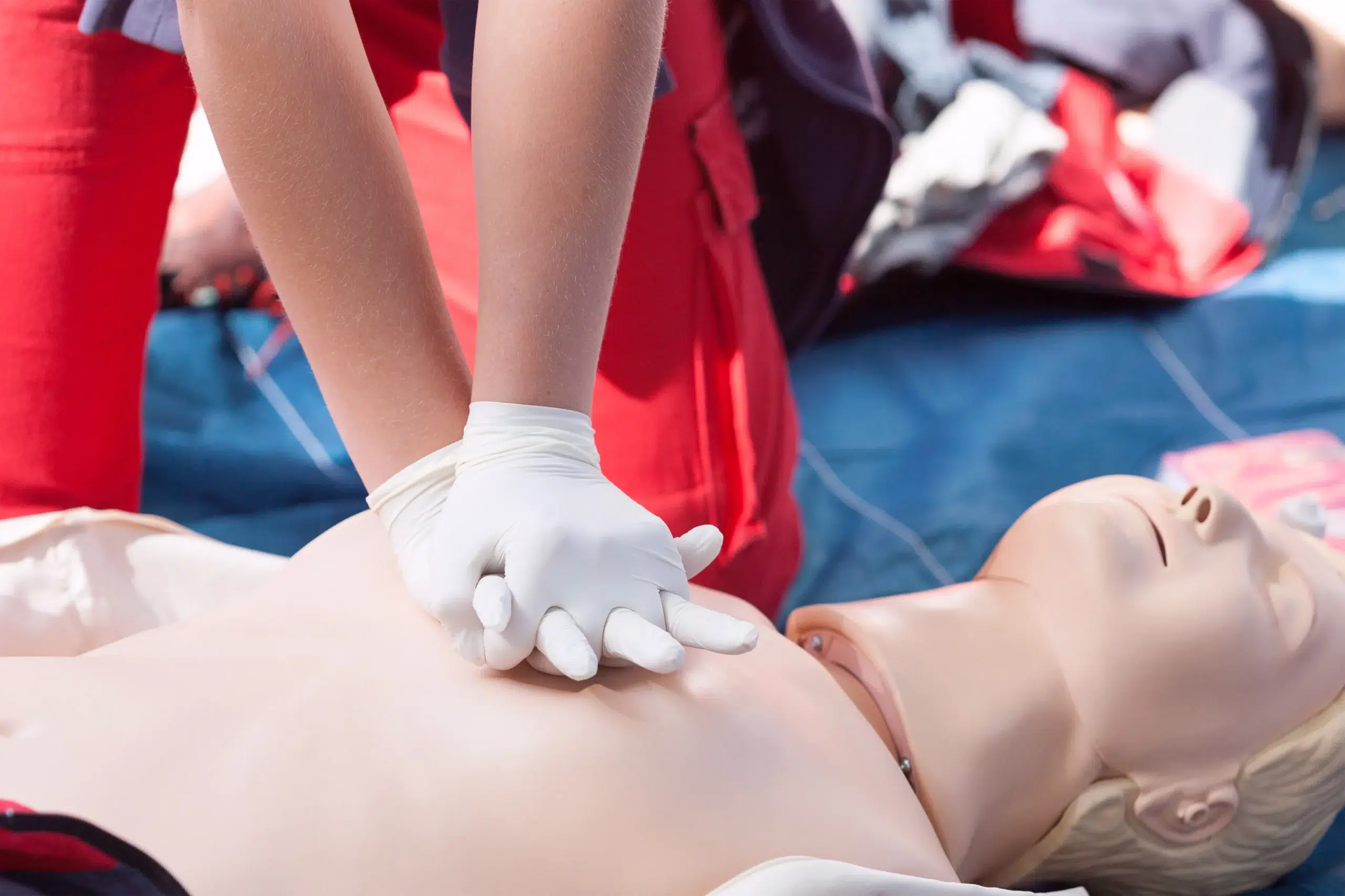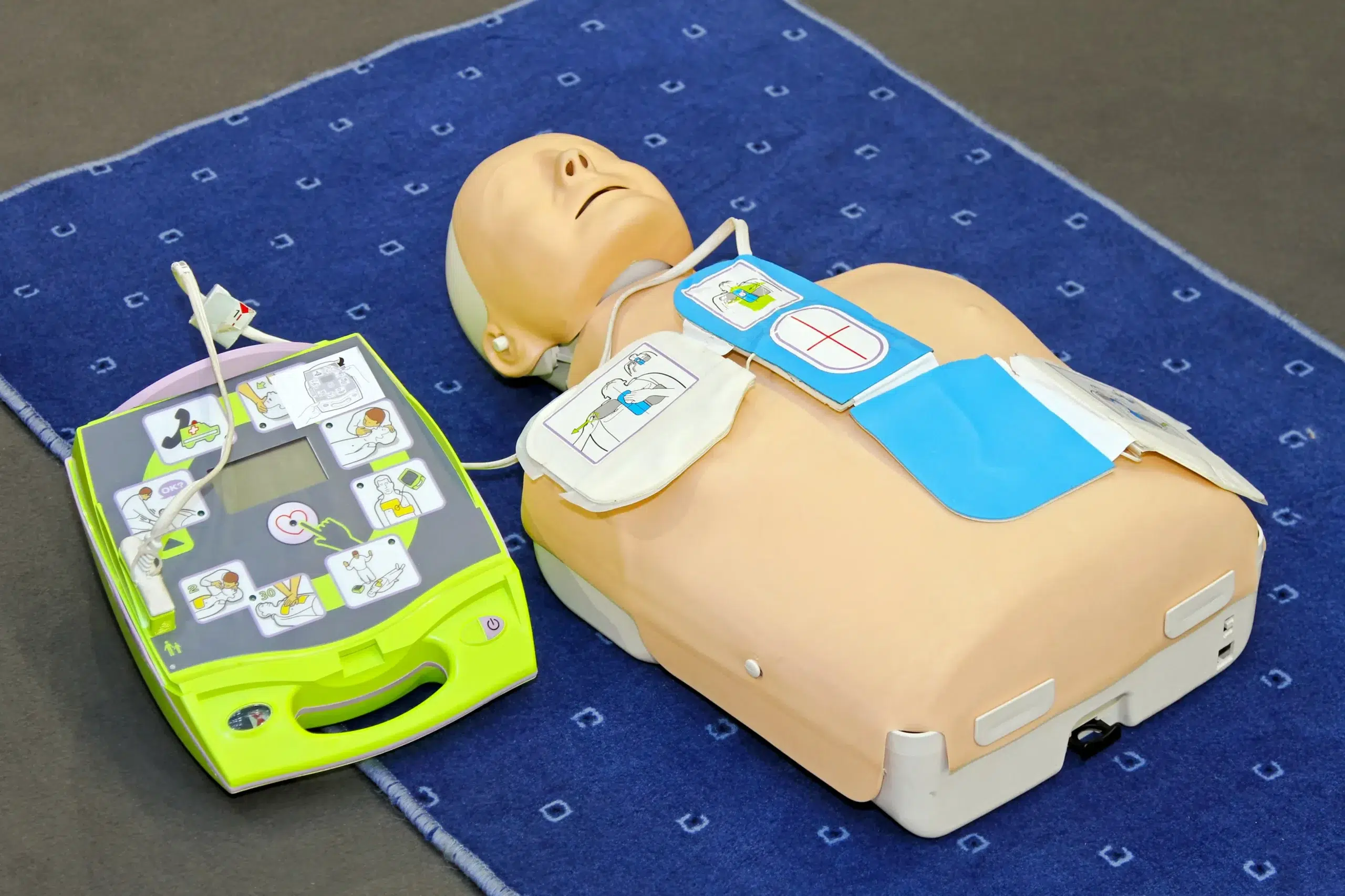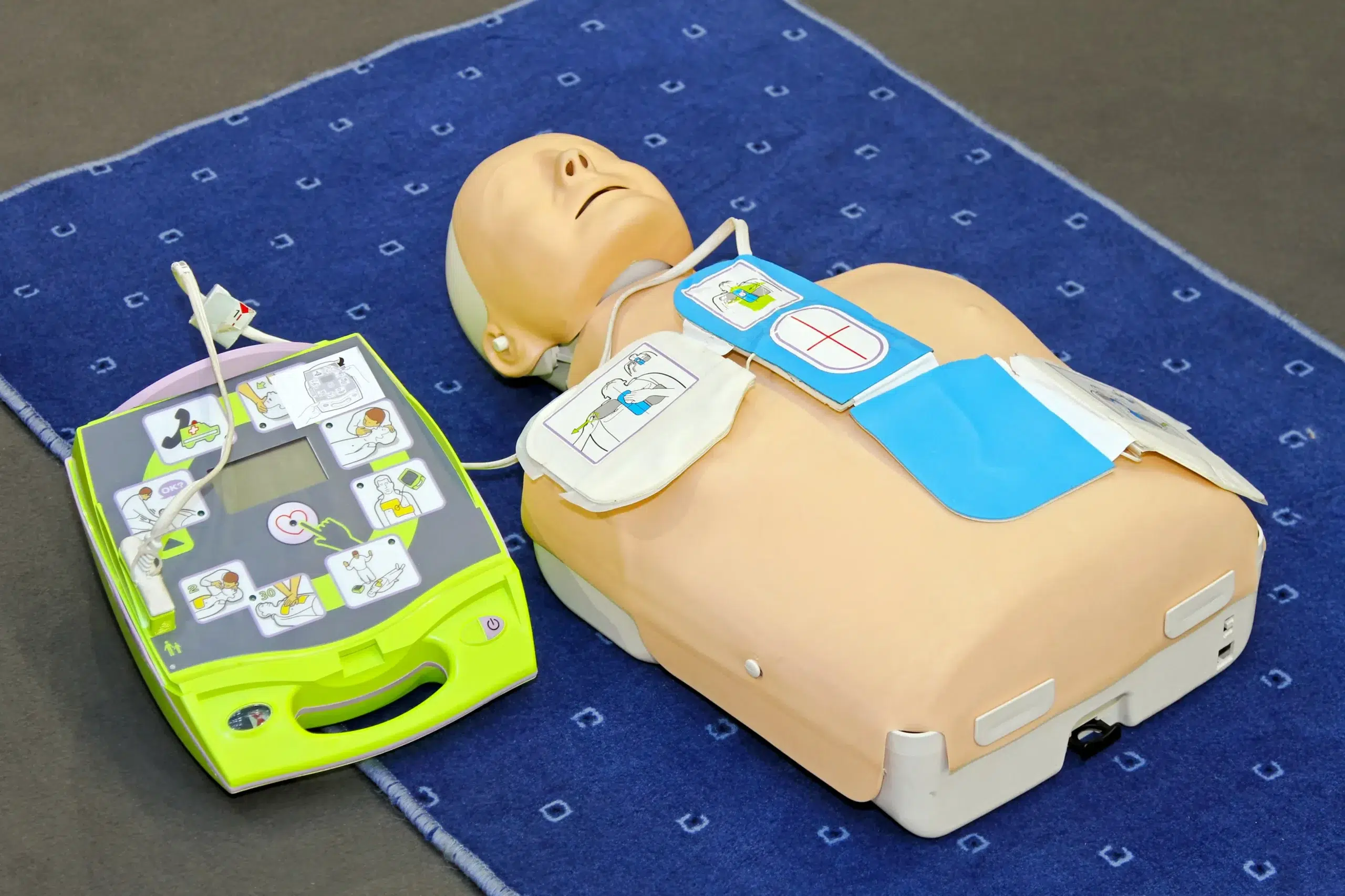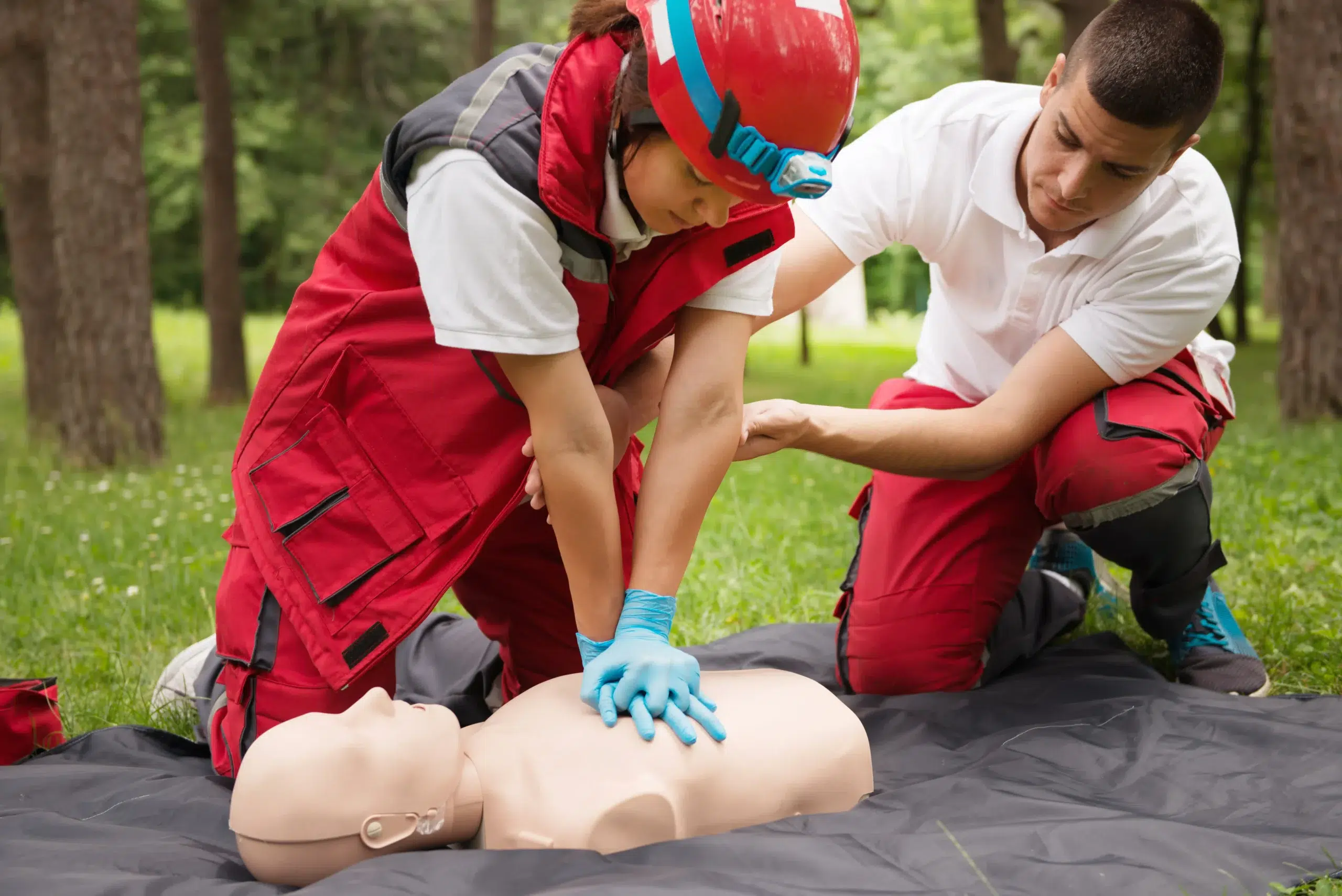Working in healthcare, especially with children, requires a unique blend of compassion, skill, and preparedness. Pediatric emergencies can be incredibly stressful, but with the right training, you can respond confidently and effectively. Pediatric Advanced Life Support (PALS) certification is designed to give healthcare providers the tools they need to handle these critical situations. This guide will walk you through everything you need to know about PALS, from course content and structure to finding the right training program for pediatric advanced life support in Berkeley. We’ll also discuss the value of PALS certification for your career and the positive impact it can have on the children you care for.
Key Takeaways
- PALS certification equips you to handle pediatric emergencies: Focus on finding a course with hands-on practice and current AHA guidelines.
- Consider various factors when selecting a PALS course: Look at the curriculum, format, instructor experience, and reviews to find the best fit. Compare providers like Oakland CPR Courses and Safety Training Seminars.
- Stay current with your PALS certification: Recertify every two years and pursue continuing education to maintain your skills and provide optimal care.
What is Pediatric Advanced Life Support (PALS)?
Pediatric Advanced Life Support (PALS) is a specialized course designed to give healthcare providers the skills they need to respond to life-threatening emergencies in infants and children. The course focuses on recognizing and managing cardiopulmonary arrest, shock, and respiratory emergencies. Early intervention is key, and PALS emphasizes the specific treatment protocols needed for young patients. Children’s bodies react differently than adults’ do in emergencies, making this specialized training critical for anyone working with children in a healthcare setting. The American Heart Association clarifies that the PALS course is for providers who direct or participate in managing these emergencies. PALS covers a broad range of topics, including recognizing respiratory distress, managing shock, and performing CPR on infants and children. The goal is to equip participants with the skills to quickly identify children needing immediate help and begin appropriate treatment. You can find additional PALS information and resources online.
Who Needs PALS Certification?
Knowing PALS—Pediatric Advanced Life Support—can make a real difference in a child’s life. It equips you with the skills to handle pediatric emergencies with confidence. But who exactly needs this training? Let’s break it down.
Healthcare Professionals Who Work with Children
If you’re a healthcare provider regularly interacting with children, PALS certification is often essential. Think emergency responders, ER staff, intensive care unit personnel, and anyone in a healthcare setting where a child might experience a respiratory or cardiovascular emergency. The American Heart Association created PALS specifically for those directing or participating in pediatric emergency management. It ensures everyone on the team has the knowledge to respond effectively. For example, consider roles like pediatricians, nurses in pediatric units, and paramedics. These professionals benefit from having the advanced skills taught in a PALS course.
Specific Job Roles and Requirements
Some roles specifically require PALS certification. This often includes paramedics, emergency room physicians, and nurses working in pediatric units. Before you sign up for a PALS course, ensure you have a current Basic Life Support (BLS) certification and a background in pediatric care. These prerequisites help make sure you’re ready to learn the advanced skills taught in PALS and can handle critical situations involving infants and children. PALS courses often emphasize hands-on learning and practical skills development, which are essential for staying sharp and confident in your abilities. You can find more information on PALS courses and requirements.
PALS Certification Options in Berkeley
Finding the right Pediatric Advanced Life Support (PALS) certification course is crucial for healthcare providers working with children. The Berkeley area offers several convenient and reputable options. Let’s explore some of the leading providers:
Oakland CPR Courses
Oakland CPR Courses provides comprehensive PALS training through Safety Training Seminars, a certified training center. Their courses equip healthcare professionals, including physicians, nurses, paramedics, and other allied health providers, with the skills to manage pediatric emergencies. Learn more about their PALS courses on their website. They’re known for excellent customer service and competitive pricing, making them a popular choice. They also offer a low price guarantee and group discounts, helpful for teams or organizations.
Berkeley CPR Classes
While information on Berkeley CPR Classes is available online, verify their current offerings and American Heart Association (AHA) affiliation. A quick search will provide details on their PALS courses and schedules. Always confirm the provider offers AHA-compliant PALS training for a recognized certification.
Safety Training Seminars
Safety Training Seminars partners with Oakland CPR Courses to deliver high-quality PALS training. They offer a convenient Oakland location and daily classes, making scheduling easier. Their focus on AHA-accredited courses ensures participants receive up-to-date training and official certification cards.
American Heart Association Training Centers
The American Heart Association accredits training centers like those mentioned above. To explore other options or the RQI (Resuscitation Quality Improvement) program, check the AHA website for accredited training centers in the Berkeley and Oakland area. This helps you find additional providers and compare learning formats.
PALS Course Structure and Format
PALS courses use a blended learning format, combining online coursework with in-person skills sessions. This approach lets you learn at your own pace online and then demonstrate your skills in a practical setting.
Online Learning
The PALS course begins with an online component. This self-directed portion covers essential concepts and allows you to work through the material at your own speed. The American Heart Association offers more information on their PALS Course Options, including this blended learning approach. This flexible format makes it easier to fit the training into your busy schedule.
In-Person Skills Testing
After completing the online portion and passing the final written exam, you’ll attend an in-person skills session. This session allows you to demonstrate your PALS skills to a certified instructor. The Red Cross website offers details on PALS certification and the importance of the in-person skills check. This hands-on evaluation ensures you can effectively apply your knowledge in real-world scenarios.
Hands-on Practice
The in-person skills session typically lasts about five hours, including breaks. You’ll participate in practical exercises focusing on high-performance team dynamics and essential individual skills for pediatric emergencies. The American Heart Association emphasizes this hands-on training in their PALS Course Options materials. This immersive experience reinforces your online learning and prepares you to confidently manage pediatric emergencies.
PALS Certification: Cost and Value
Getting your PALS certification is an investment in your career and the children you care for. Understanding the costs, available discounts, and the overall value of this training helps you make an informed decision.
Pricing and Guarantees
PALS course prices vary depending on the provider. Compare options to find a course that fits your budget. Safety Training Seminars offers PALS courses in Oakland, along with other certifications like BLS and ACLS, often with competitive pricing. Oakland CPR Courses offers a low-price guarantee for their courses, including PALS. Check if the provider offers group discounts, which can lower the cost if you’re registering with colleagues.
Discounts and Promotions
Many training centers offer discounts and promotions. Look for special offers, especially around peak seasons or holidays. Some providers, like those offering PALS training in Berkeley, may have limited-time promotions. Check directly with training centers or browse community event listings for potential discounts.
Return on Investment
The value of PALS certification extends beyond its cost. PALS training equips you with skills to respond effectively in pediatric emergencies, potentially saving lives. This certification enhances your professional credentials, making you a more competitive candidate in the healthcare field and opening doors to new opportunities. The confidence you gain from PALS training empowers you to handle critical situations with expertise.
Prepare for PALS Certification
Getting ready for your PALS certification involves a few key steps. Understanding the qualifications, gathering your study materials, and ensuring your BLS certification is current will set you up for success.
Qualifications
The PALS course is designed for healthcare providers who manage respiratory emergencies, shock, and cardiopulmonary arrest in infants and children. This includes doctors, nurses, paramedics, respiratory therapists, and other professionals involved in pediatric emergency care. Check with your employer or the American Heart Association to confirm you meet the specific requirements for enrollment.
Study Materials
Thorough preparation is key to mastering the PALS curriculum. The PALS Provider Manual is your primary resource and should be reviewed carefully before the course. Many providers also recommend completing the pre-course self-assessment to identify areas where you might want to focus your study time. Familiarizing yourself with the algorithms and protocols beforehand will make the course itself much more manageable. ACLS Now offers some helpful tips for preparing for your PALS class.
BLS Certification
A current Basic Life Support (BLS) certification is a prerequisite for PALS certification. Make sure yours is up-to-date before enrolling in a PALS course. You can find information on BLS certification courses on the American Heart Association website. Having a solid foundation in BLS principles is essential for building upon the advanced skills taught in PALS.
What to Expect in Your PALS Course
Getting ready for your PALS class? Here’s a preview of what you’ll learn and how you’ll develop your lifesaving skills. We’ll also cover the assessment process so you know what to expect on your way to becoming PALS certified.
Course Content
The PALS course covers a range of critical pediatric emergencies. You’ll learn to recognize and manage conditions like respiratory distress, shock, and cardiac arrest. The curriculum also includes essential information on other emergencies that can arise when caring for children. This comprehensive training ensures you’re prepared to handle various life-threatening situations. Learn more on the PALS course page.
Learning and Skills Development
PALS courses use several teaching methods to make learning engaging and effective. Expect a mix of lectures, real-world case studies, and hands-on practice. You’ll work with realistic simulation manikins, giving you a chance to apply your knowledge and refine your skills. This practical experience is key to building confidence and competence in pediatric emergency care. Consider our group discounts if you’re learning with colleagues.
Assessment and Certification
After completing the PALS course, you’ll need to pass both a written exam and skills tests to receive your certification. The written exam requires a minimum score of 84%, demonstrating your understanding of the course material. The skills tests evaluate your ability to perform the techniques learned during the course. Successful completion earns you your PALS certification, valid for two years. Oakland CPR Courses adheres to the American Heart Association guidelines for PALS certification. See our low price guarantee for competitive pricing.
Maintain Your PALS Certification
Keeping your PALS certification current is vital for providing the best possible care to young patients. This section covers the renewal process and the importance of continuing education.
Renewal Process
PALS certification is valid for two years. To maintain your credentials, you’ll need to recertify before it expires. This involves completing a PALS renewal course covering the latest guidelines and best practices in pediatric emergency care. Staying up-to-date with these practices ensures you’re prepared to handle any pediatric emergency effectively. Check with your certifying body, such as the American Heart Association, for specific renewal requirements and available courses. Planning ahead and scheduling your renewal in advance will prevent any lapse in your certification.
Continuing Education
Even between renewals, continuing education is essential for any healthcare professional working with children. The field of pediatric advanced life support constantly evolves, with new research and techniques emerging regularly. Engaging in continuing education activities, such as attending workshops, conferences, or online courses, allows you to stay informed about these advancements. This ongoing learning helps refine your skills and ensures you’re providing the highest standard of care. Resources like CECentral offer a variety of continuing education opportunities for healthcare providers, including those focused on pediatric care. Staying active in your professional development demonstrates your commitment to excellent patient care.
Benefits of PALS Certification
Earning your PALS certification offers significant advantages, from enhancing patient care to boosting your career prospects. Let’s explore some key benefits:
Improve Patient Care
PALS certification equips healthcare providers with the skills to confidently manage pediatric emergencies. The training, often provided through organizations like the American Heart Association, covers a wide range of topics, building a strong foundation for effective pediatric care. This translates to improved patient outcomes and a higher standard of care for children in need. The focus is on delivering high-quality care, integrating hands-on skills with critical thinking to achieve the best possible results. This comprehensive approach ensures providers can handle diverse emergency situations with competence and composure.
Advance Your Career
Holding a PALS certification demonstrates a commitment to excellence in pediatric care. It’s a valuable asset that can open doors to new opportunities and career advancement. Many healthcare roles require or prefer candidates with PALS certification, giving you a competitive edge in the job market. Resources like ACLS Now highlight its importance for professionals seeking to enhance their qualifications and advance their careers. This certification can be a deciding factor in securing desired positions and progressing within the healthcare field.
Build Confidence in Emergencies
Facing a pediatric emergency can be stressful, but PALS training provides the knowledge and practice needed to respond effectively. Through realistic scenarios and hands-on training, you’ll develop the confidence to assess, manage, and provide appropriate care during critical situations. Blended learning courses, such as those offered by the Red Cross, combine online learning with in-person skills sessions, offering a flexible way to gain this essential training and confidence. This preparation empowers you to act decisively and provide the best possible care when it matters most. You’ll be better equipped to handle the pressure and make informed decisions under challenging circumstances.
Choose the Right PALS Course in Berkeley
So, you’re ready to get your PALS certification—great! Choosing the right course is an important step. This section breaks down how to find the best fit for your needs in Berkeley.
Factors to Consider
When selecting a PALS course, the curriculum and the skills taught should be your top priorities. A comprehensive PALS course covers recognizing and managing critical conditions in children. This includes respiratory distress, shock, and cardiac arrest. You’ll want a course that aligns with the latest American Heart Association (AHA) guidelines to ensure you’re learning the most up-to-date practices. Look for a program that offers hands-on practice and simulation scenarios. This practical experience is key to building confidence and proficiency in pediatric emergency care. Finally, consider the course format and schedule. Do you prefer in-person learning or a blended approach with online components? Think about what works best with your learning style and availability.
Compare Courses
It’s always smart to compare a few different course providers before committing to one. Look at what each course offers and see how they stack up against each other. Safety Training Seminars offers AHA-accredited PALS courses, along with other certifications like BLS, ACLS, and First Aid. Their Oakland location is convenient for anyone living in Berkeley. Check their website for more information on schedules and course content. Also, consider factors like class size. Smaller classes often allow for more personalized instruction and interaction with the instructor. Don’t hesitate to contact different providers directly and ask questions. A reputable provider will be happy to address your concerns and help you find the right fit.
Top-Rated Providers
Berkeley has several well-regarded providers offering PALS courses. American Heart Association (AHA) classes are known for their high quality and community focus. Yelp can also be a helpful resource for finding local providers and reading reviews. Look for providers with experienced instructors, positive reviews, and a clear commitment to providing excellent training. Ultimately, the best PALS course for you will depend on your individual needs and preferences. Take the time to do your research and choose a program that will equip you with the skills and confidence to provide exceptional care in pediatric emergencies.
Related Articles
- AHA PALS Classes in Oakland, CA – Oakland CPR Classes
- Online PALS Classes Alameda: Your Complete Guide – Oakland CPR Classes
- BLS HeartCode Alameda: Your Certification Guide – Oakland CPR Classes
- BLS Certification in Oakland: The Ultimate Guide – Oakland CPR Classes
- CPR, BLS, ACLS, PALS, & First-aid Courses in Oakland, CA
Frequently Asked Questions
Why is PALS certification important?
PALS certification is crucial for healthcare providers who might need to respond to life-threatening emergencies in infants and children. It teaches specialized skills and protocols tailored to young patients, whose bodies react differently than adults’ do in emergencies. This specialized training can significantly improve the quality of care a child receives during a critical situation.
What does a PALS course cover?
A PALS course covers a wide range of topics essential for managing pediatric emergencies. You’ll learn how to recognize and manage respiratory distress, shock, and cardiac arrest in infants and children. The course also covers essential protocols and algorithms for treating these emergencies effectively. The curriculum emphasizes hands-on practice and simulations to build confidence and competence in real-world scenarios.
How do I get PALS certified?
You can get PALS certified by completing a course through an accredited training center, like those affiliated with the American Heart Association. These courses typically involve a combination of online learning and in-person skills sessions. You’ll need to pass both a written exam and a skills test to receive your certification. Make sure your BLS certification is current before enrolling in a PALS course, as it’s a prerequisite.
How much does PALS certification cost?
The cost of PALS certification varies depending on the training provider and location. It’s a good idea to compare prices from different providers to find the best value. Look for providers who offer discounts, such as group rates or special promotions, which can help make the training more affordable. Remember to factor in the long-term value of the certification for your career and the children you care for.
How long is PALS certification valid, and how do I renew it?
PALS certification is typically valid for two years. To renew your certification, you’ll need to complete a recertification course before it expires. This ensures you stay up-to-date with the latest guidelines and best practices in pediatric emergency care. Continuing education between renewals is also highly recommended to stay informed about advancements in the field.








